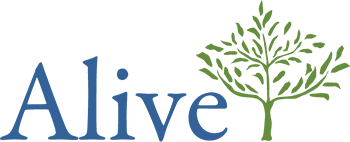Published on June 15, 2018
Misperceptions Stop Many from Seeking Help
National studies continue to find that minority groups are not taking equal advantage of the Medicare hospice benefit. Caucasians make up 86.5 percent of Medicare hospice beneficiaries while African Americans represent 8.3 percent, followed by Hispanics at 2.1 percent, and Asians at 1.2 percent, according to the latest statistics from the National Hospice and Palliative Care Organization.
“We realized we needed to learn all we could directly from our local communities. There are significant obstacles for minorities in accessing end-of-life care.”
Culture, history, economic status, and spiritual beliefs all play a part in how patients and families think about health care. This is especially true when it comes to care at the end of life. The Alive Institute conducted focus groups with 70 African American and Hispanic/Latino participants to learn how we can better serve these populations. The focus groups gauged understanding of what hospice care is and captured attitudes on death, dying, and health care over all.
“We realized we needed to learn all we could directly from our local communities. There are significant obstacles for minorities in accessing end-of-life care,” said Keith King, community relations manager at Alive. “We want to remove these barriers so all can access the enormous amount of help available to them through the Medicare benefit.”
The Vanderbilt School of Nursing provided a qualitative analysis for the project. Angie Deaton, who recently earned a Master’s degree at Belmont University and is a native of Colombia, prepared a Hispanic/Latino outreach guide during her internship for Alive.
“We often hear from people who learned about hospice care after the death of a loved one. We also know that misperceptions about what hospice care is and a mistrust of the health care system can prevent people from getting the help they need,” King said. “The information gained from these focus groups will help us find better ways to serve our patients and their loved ones now and in the future,” he said.
Alive plans to seek more input from underserved communities and will develop programs and materials based on the findings.
Thoughts from Focus Group Participants
“I just experienced hospice care this year when our neighbor died from cancer. It seems like…what they taught him was a way to look death in the face with peace.”
“We have had a lot of relatives that needed that kind of assistance. … Hospice would have helped … with the emotional stress. … We don’t have the specific knowledge, and [there are also] the language barriers, cultural barriers that don’t allow us to understand the options that are out there, that would make their end of life more peaceful and easy for the whole family.”
